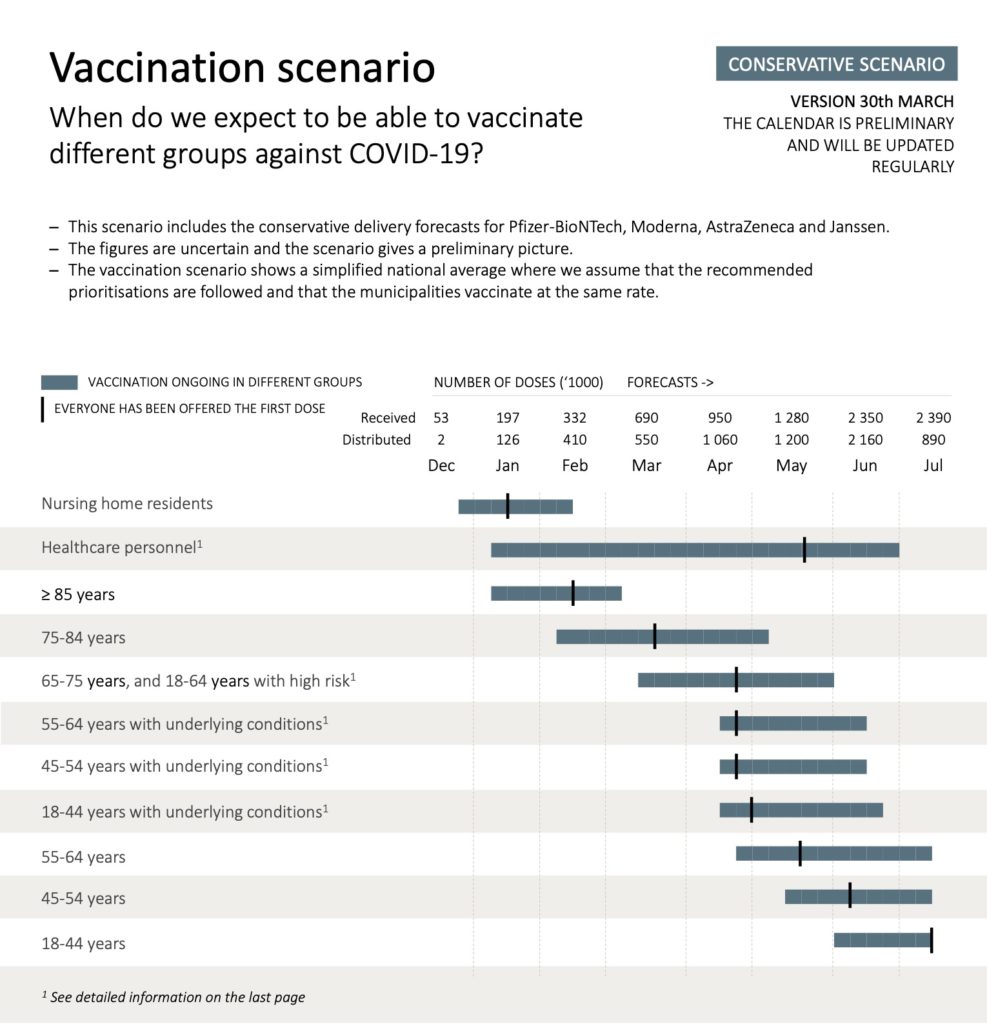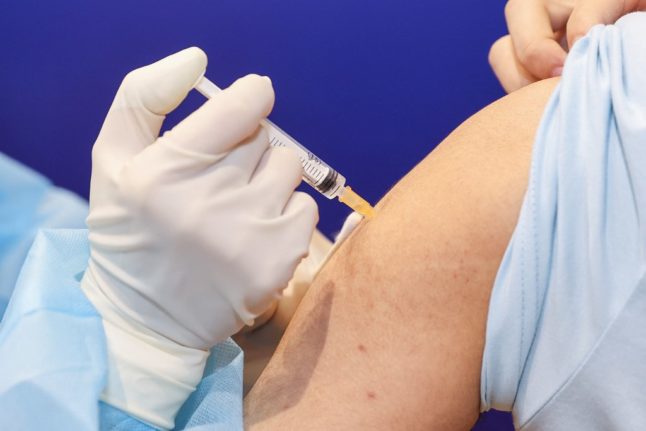Previously, the NIPH best case scenario aimed to have offered everybody their first dose of the vaccine by the end of June.
“There are small differences in this vaccination scenario compared to what we (previously) presented on March 12th. The updated scenario shows that there will be approximately a couple of weeks of delay, both for when the age group 45-55 receive their first dose, and when those over 18 have been vaccinated”, NIPH director of infection control Geir Bukholm said in a statement.
The Norwegian health authority also plans to use the single-dose Janssen vaccine from Johnson & Johnson to help vaccinate people between the ages of 18 and 44.
“For many in the age group from 18 to 44, this (the first dose) will probably also be the last dose, because we plan to use the Janssen vaccine from Johnson & Johnson on this group,” Bukholm told national broadcaster NRK.

Last week, Johnson & Johnson announced that they could deliver 52,000 doses in April, far less than the 310,000 doses the NIPH had estimated that Norway would receive during the month. Bukholm is nevertheless confident that the vaccines will be delivered.
“We have no evidence that the vaccine will not be delivered as agreed. In the first scenarios we posted, we did not have an agreement on exact delivery dates. We have that now,” he said.
READ NORE: Norwegian prime minister hopes to reopen most of the country by September
The AstraZeneca vaccine, which has had its use in Norway suspended while links to serious suspected side effects are investigated, is still included in the plan.
The new plan stipulates that the break will last for five weeks. If there are further delays or the NIPH decides to drop the vaccine, that will delay the rest of the program.
In the revised roadmap, health authorities are planning to use the four vaccines that have already been approved. These are the Moderna, Pfizer, Johnson & Johnson and AstraZeneca vaccines. If more are approved, the plan could be sped up.
Many people will be vaccinated during the summer holidays under the current schedule. Last week, NRK reported that several municipalities had to cancel vaccination over the Easter period as so many had refused the vaccine due to it being the holidays.
Bukholm hopes to avoid similar postponements in the summer.
“We hope that people accept the vaccination slot they are offered. Especially during the summer holidays when we are nearing the end of the vaccination programme,” he said.
To date more than 620,000, or around one-in-ten, people In Norway have been vaccinated. The vaccine will be free and accessible to everyone in Norway, including foreign nationals who reside in the country.



 Please whitelist us to continue reading.
Please whitelist us to continue reading.
Member comments